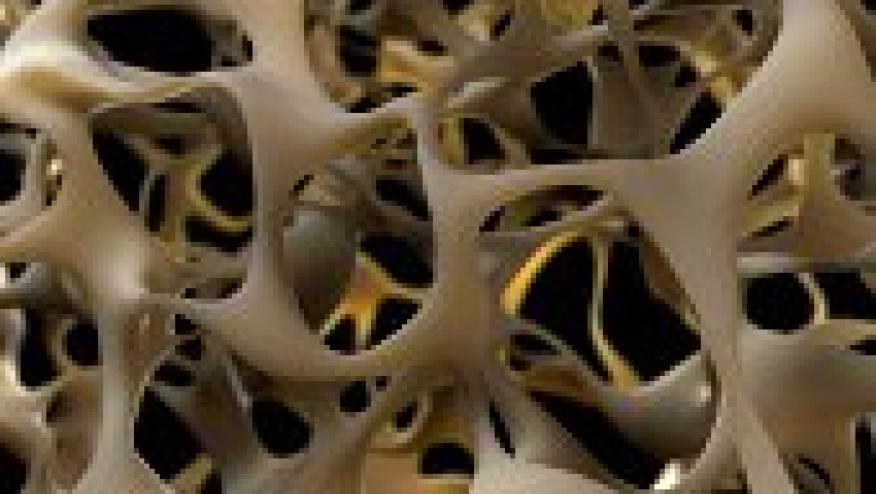Denosumab Increases Trabecular Bone Save

Bone mineral density (BMD) measurement vie DEXA scan commonly used to assess bone density and fracture risk in postmenopausal osteoporosis provides us with approximate assessment of bone health while lacking sensitivity in vertebral fracture risk prediction. Newer techniques, such as the trabecular bone score (TBS), provide better insight into bone microarchitecture - an important factor for fragility fracture.
TBS has been shown to be predictive of fragility fractures in postmenopausal women with primary osteoporosis and has been newly included in international guidelines, providing an additional screening tool to identify patients in need of therapeutic intervention.
Assuming TBS may have a better predictive value in future fracture preventions, this retrospective review of the 3 –year long FREEDOM trial was designed to explore the effect of denosumab on TBS and association between TBS and BMD in 7808 postmenopausal women with osteoporosis in FREEDOM cohort.
Using TBS iNsight software in a blinded-to-treatment manner, the TBS of subjects who participated in the DXA substudy was determined retrospectively. 285 patients were established to have measurable TBS at baseline and were included in analysis.
In the denosumab group, progressive statistically significant increase from baseline at 12/24/26 months was observed for both BMD (5.7/7.8/ 9.8%, respectively) and TBS (1.4/1.9/ 2.4%), p value p<0.001.
More subjects in the denosumab group than in the placebo group had TBS gains of 5.82% or greater at 12 months (15 vs 11%; p = 0.271), 24 months (21 vs 9%; p = 0.012), and 36 months (20 vs 6%; p = 0.001).
There was no significant correlation between TBS and BMD in this study, which in author’s opinion supports the principle that TBS provides a measure of bone not captured by standard densitometric techniques and may allow for an improved assessment of differences in responses to diverse therapies for osteoporosis.










If you are a health practitioner, you may Login/Register to comment.
Due to the nature of these comment forums, only health practitioners are allowed to comment at this time.